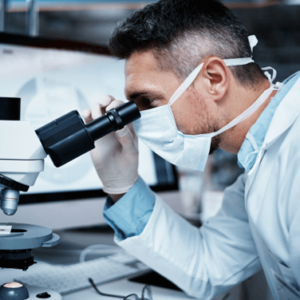The pandemic brought to light a lot of processes people had little familiarity with before it hit. One such process is the development of new drugs and devices. Questions about how it is done, what it entails, and how long it takes to create a safe, effective drug have become a part of the social consciousness. We’re going to look at those questions and provide some answers to emphasize the importance of clinical research studies.
What are Clinical Research Studies?

Clinical research studies are structured to evaluate the safety and efficacy of drugs and devices that may improve the medical landscape. Through the testing of investigational drugs, devices, and procedures we learn more about disease itself. Specifically, how to diagnose it, what treatments are the most effective, and even prevention.
Most people associate clinical research trials with testing new investigational drugs and/or devices, and for good reason. Clinical trials are a large part of research studies, as mandated by the Food and Drug Administration (FDA).
However, as large a part as investigational drug and/or device research plays in clinical trials, it is hardly the whole story. Medical devices, clinical procedures, and other innovative interventions are all subject to review. The results of these studies are then measured against current medical practices to determine if there is a better way to treat certain conditions.
Clinical Research is About Safety
When treating illness or chronic health issues, safety is at the forefront of every decision. After all, the purpose of these drugs and devices is to improve health. This is why clinical research is so important. Rather than blindly rolling out drugs and devices that scientists believe MAY be beneficial, doctors have empirical data on which to rely.
For instance, vaccines go through a three-phase process before they are ready to be made publicly available.
- Phase 1: Small groups of people receive the trial vaccine.
- Phase 2: The study expands to include specifically those for whom the vaccine is intended (often factoring in things such as age and physical health)
- Phase 3: The vaccine is administered to thousands to be tested for efficacy and safety.
All these phases must be cleared before the FDA delivers the vaccine safe for mass distribution.
Clinical Research Studies are Impartial

Bias is something that impacts all of us in ways large and small. For doctors, bias is something that must be kept in check for the good of the patients. Their bias can stem from drug companies themselves or anecdotal evidence based on personal experience.
Clinical research, however, strips bias out of the equation. There is hard data to rely on when it comes to determining safety and efficacy of new drugs and devices. Doctors can apply a more personal approach when considering each individual patient. They are able to consider a patient’s medical history and current health when evaluating whether potential side effects outweigh the benefits of treatment.
While all care should be personal, doctors can take empirical data to ascertain what methods and treatments will be most effective for their patients.
Clinical Research and Global Healthcare Crises
There was a lot of concern during the development phase that the COVID-19 vaccines were produced too hastily, and therefore were not as reliable as past vaccines.
Yet even in the middle of health crises, that we are still learning about in real-time, the protocols intrinsic to clinical research remain in place. This prevents unsafe drugs and devices from being released to the public.
For COVID specifically, four existing clinical research networks merged to share resources and help expedite available treatments and vaccines. While new diseases are rightfully concerning due to the lack of immediate treatment, the medical research community is governed by practices that are built foremost on safety.
Clinical Research Helps Improve Lives

The end goal of all clinical research is to improve the quality and, when possible, the length of life for patients. That is why all of this is done, and why safety remains such an utmost concern in all endeavors. Once an investigational drug and/or device’s efficacy and safety have been adequately tested, it can be prescribed and distributed to those who truly need it.
Check out the upcoming clinical trials at QPS. And as always, do not hesitate to come to us with your questions.
